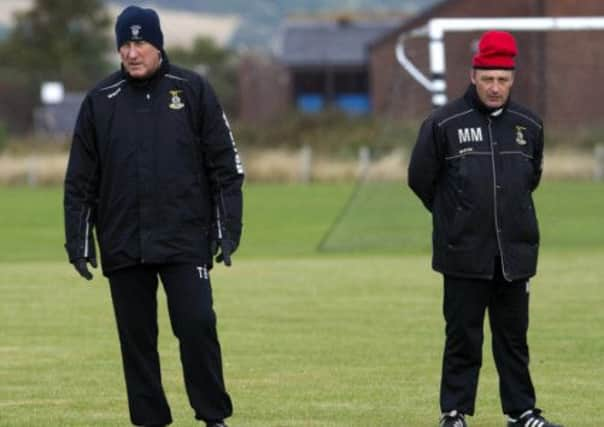Martin Hannan: Hibs must secure Malpas and Butcher


The former captain of Ipswich Town, Rangers and England was a legend on the pitch, but the facts are that his career as a manager has seen him suffer considerable setbacks, as well as long periods out of the game, and, judged on his record over the 23 years since he first donned a managerial tracksuit, there would be many at Easter Road who would wonder what the club is getting for its money.
This is not to knock Butcher, for, as we shall see, his has been a long learning curve, and only now, at the age of 54, can he truly said to be approaching the finished article as a manager.
Advertisement
Hide AdAdvertisement
Hide AdIt was 23 years ago that Butcher left Rangers to become the player/manager of Coventry City – he was then the youngest manager in the Football League. In nearly two seasons, he played in only six matches, but he made a decent fist of it as manager at first. After rescuing the Sky Blues from deep in the relegation zone in the middle of season 1990-91 – they eventually finished 16th – Coventry were actually in a better position at 15th when he was sacked in January, 1992, being replaced by his former assistant Don Howe. Butcher then went back to playing at the start of the new season, signing for Sunderland in the second tier. He later became player/manager, and, as at Coventry, he kept them from being relegated – albeit by a single point.
When Sunderland had a disappointing start to season 1993-94, he lasted to November before being sacked. Those who knew him back then say he was the ultimate motivator, with a fierce passion for the game matched by his ambition for success, but his tactics and team selections were often questioned.
Tough nut he most certainly was, but Bucher was also a bit of a softie when it came to Scotland, and after leaving Sunderland and playing a final three games for Clydebank, Butcher moved wife Rita and his family to Bridge of Allan and took over the Old Manor Hotel, where he had enjoyed himself during his stint with Rangers. That career move did not go well at first – Butcher sacked his own sister, who he had put in charge, so anyone at Easter Road who thinks Butcher will shirk hard decisions has another think coming.
Butcher had always had a life outside football, having owned an insurance brokers during his time at Ipswich Town, but it surprised his friends and admirers that he stayed as a hotelier and out of football for four years.
Ironically, it was the stand-in manager of Hibs yesterday, Jimmy Nicholl, who persuaded him back into the game as a coach at Raith Rovers in 1997, working under Nicholl and Alex Smith.
In 2001, Butcher was appointed assistant to Eric Black at Motherwell, becoming manager when the Steelmen went into administration a year later.
It was a very difficult period for Motherwell and Butcher gained a lot of respect in the game for the way he handled a tricky situation, even if Motherwell’s only major achievement then was to reach the 2005 League Cup final, in which they lost 5-1 to Rangers.
It was at Fir Park that Butcher first hooked up with Maurice Malpas, the former Dundee United and Scotland defender, and they have proved an ideal pairing. Although it is far too simplistic to say “good cop, bad cop”, Butcher’s fire and Malpas’s considered steel have made for an irresistible combination.
Advertisement
Hide AdAdvertisement
Hide AdButcher left in 2006 for an ill-fated spell with Sydney FC and was replaced at Motherwell by Malpas, who did not thrive either there, or in his ten months managing Swindon Town. Meanwhile, the big Englishman left Australia to manage Brentford for 23 matches before being sacked for the second time in the same year.
It was at Brentford that the third member of the Inverness management trio met up with Butcher – former goalkeeper turned scout Steve Marsella, who will presumably move to Edinburgh with his colleagues.
In 2008, George Burley’s decision to take an England hero on to his staff when managing Scotland set tongues wagging but no one ever doubted Butcher’s commitment to the job.
Yet it was only when he fetched up at Inverness the following year and later brought Malpas and Marsella on board that Butcher really began to motor as a manager. And he would be the first to give credit to Malpas and Marsella for their roles in the club’s rise since 2009.
So the records show that neither Butcher or Malpas was a roaring success as a manager in their own right, yet somehow the blend they have achieved with Marsella has made them a seriously good combination. Marsella finds the players, Malpas and Butcher improve them, and the manager lends his own unique form of inspiration.
Butcher has matured with age, and is much more laid back these days. He, along with Malpas and Marsella have made Inverness a club that is going places.
Can they do the same at Easter Road? If the trio stay together, the answer is probably yes.